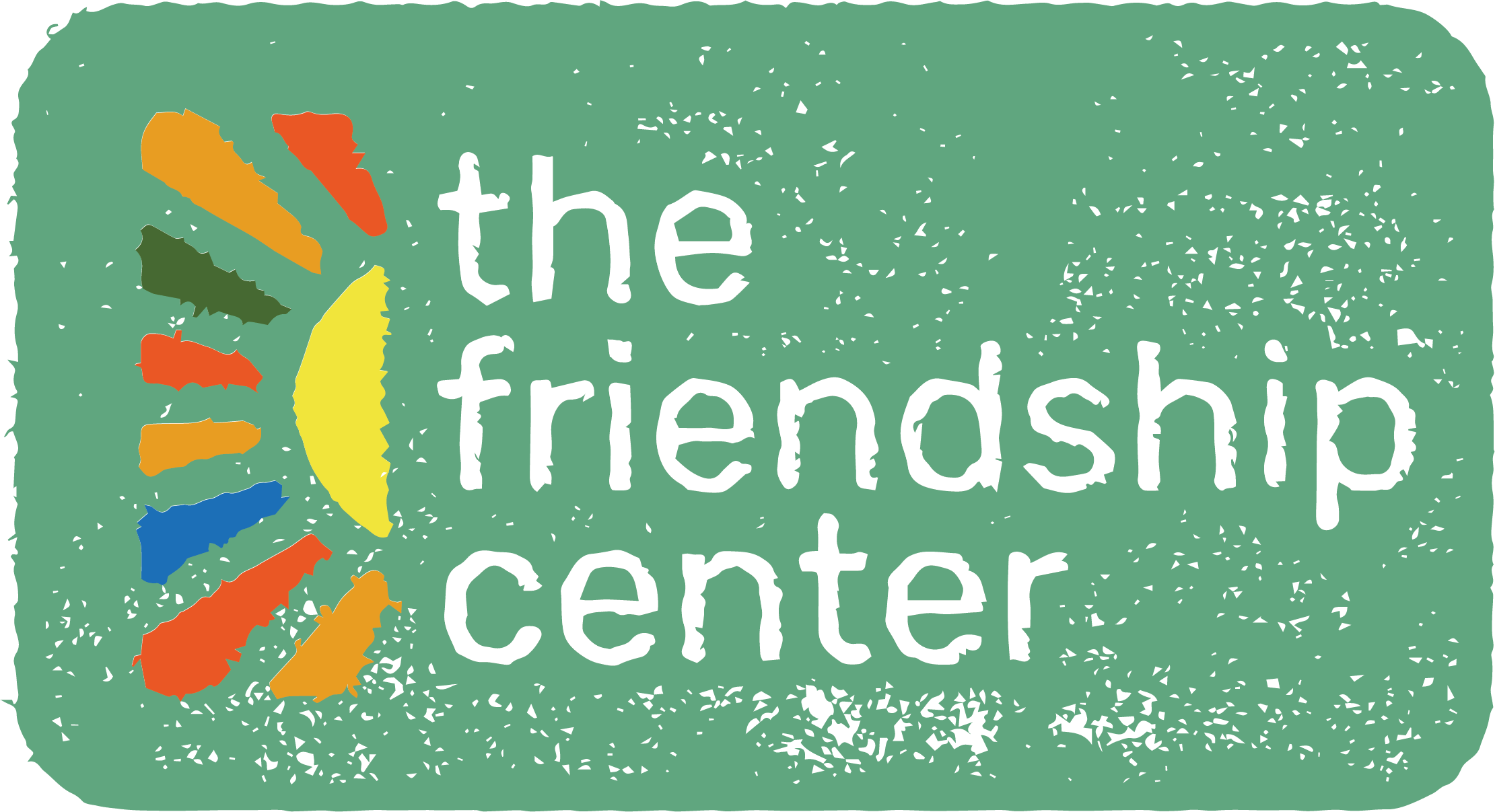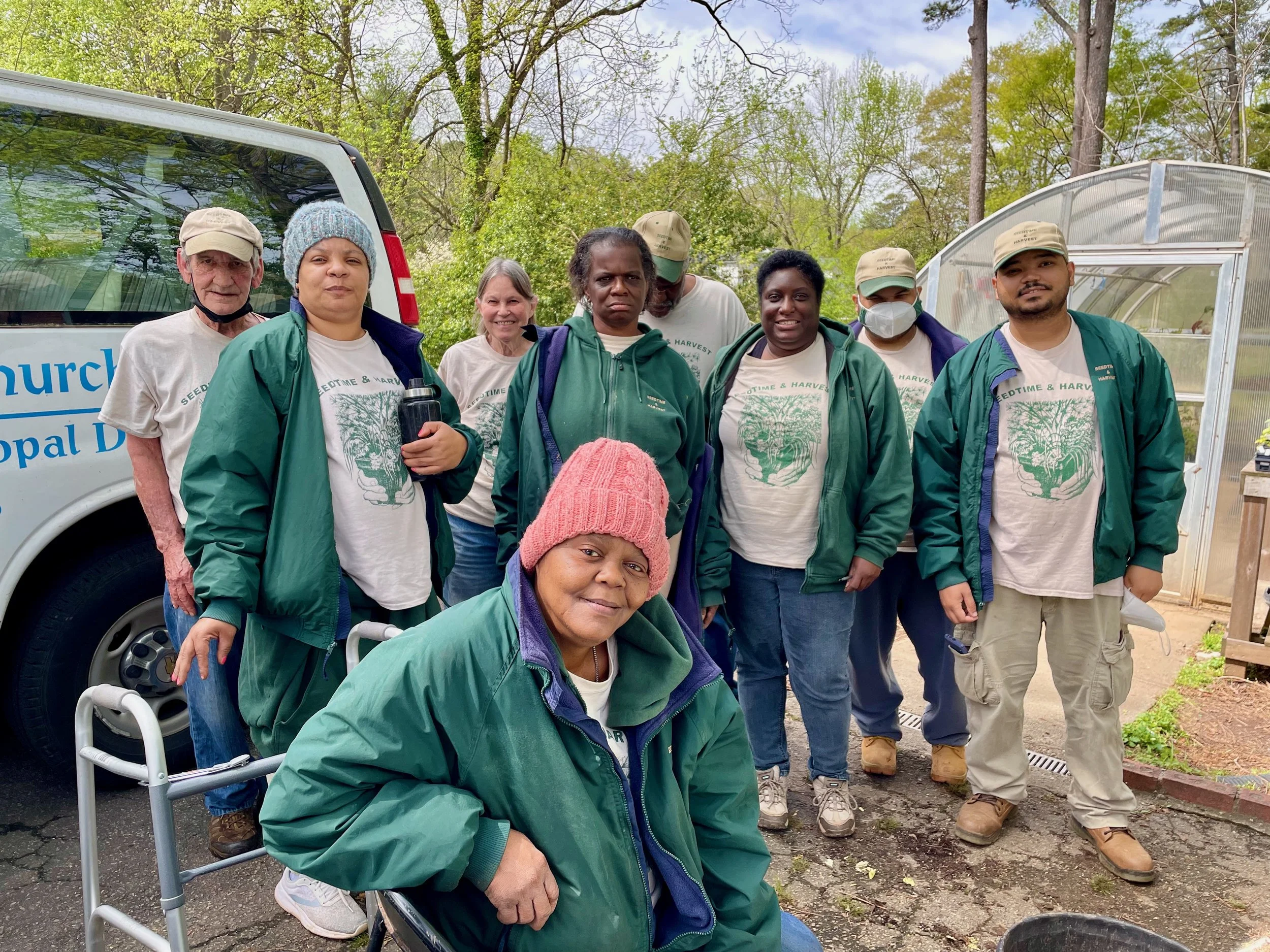Community-Based Care: Growing Together
By Amanda Newell
Some of the best friendships start over a cup of coffee. The Friendship Center began in the 1980s when a church in Ormewood Park invited its neighbors over for coffee and conversation. The neighbors were new residents in personal care homes located around the corner from Holy Comforter Episcopal Church (“Holy Comforter”). Day programs offering mental health support were on the decline in Atlanta at that time, as were weekday activities at Holy Comforter. 1 When church members put the coffee pot on and opened the parish hall doors, this quickly changed.
Over 25 years later, coffee and a friendly “Good morning!” still start the day at The Friendship Center. Now a 501(c)(3), it continues to be a place where persons marginalized by poverty and mental illness form friendships that support their recovery. It is a space where each person is known by name and accepted as they are. Many members of the community have come to The Friendship Center for over a decade. Their shared experience of navigating the difficulties in accessing mental health care forms a common and enduring bond.
According to Mental Health America, over 1.3 million adults in Georgia experience mental illness. 2 Loneliness and social isolation can increase levels of stress, depression, and anxiety in adults. 3 Research has shown that social connection can reduce feelings of loneliness for adults. 4 The National Alliance on Mental Illness (NAMI) notes that in addition to medication, education, and counseling, “social support, acceptance and encouragement” positively impact the wellbeing of people with mental health challenges.5
The caring connection that the Friendship Center provides enhances the quality of life for participants, staff, and volunteers. Members report feeling like it is a family. And like many families its members regularly share with each other what is happening in their lives. Friends at the Center are often the first to hear when a member is in the hospital, loses a loved one, or suffers a setback. And friends at the Center are quick to celebrate when a member gets their first job or reaches a recovery milestone.
In collaboration with its partners, education on recovery is part of the psychosocial support The Friendship Center provides. But education isn’t limited to planned sessions. Participants share wisdom with each other throughout the day. Staff and volunteers receive the gift of participants’ insight too. One worker recalls, “My first day at the Center (and every day since) revealed the unexamined assumptions I held about people and their potentials. Listening to the life experiences of everyone here has helped me discover that it was my understanding that was limited not the abilities of others.”
In the mental health context, recovery is defined “as a process of change through which individuals improve their health and wellness, live self-directed lives” and seek to express their talents. 6 Wellness and recovery offerings at The Friendship Center include, but are not limited to, ongoing clinics staffed by nursing students from Georgia State and a weekly NAMI meeting. Members self-direct their level of participation in a wide range of skills and relationship building activities. Over time, participants tend to gravitate toward activities that draw on their gifts. They show up first for yoga class, call out bingo numbers, make mosaics in the art program, or work in the greenhouse and garden.
Seedtime and Harvest
The Seedtime and Harvest program began at The Friendship Center in the 1990s when its director May C. Brown guided participants in setting up a garden. It grew out of the belief that “work can be an essential step on the path to wellbeing and recovery.” 7 For years, it has provided supportive employment to a diverse team of gardeners who spend their time seeding, planting, tending, and harvesting depending on the season. Gardeners soak up knowledge on growth cycles and then pass it on when new workers join the team.
Gardeners also practice caring for one another’s growth. Mutual support is a core value of the team and is incorporated in a covenant that gardeners sign. The covenant says, in part, that gardeners “are expected to support one another and others in the community in personal growth, healthy eating, getting enough rest and exercise, and breaking addictions to alcohol, tobacco, and other non-prescription drugs.” By signing the covenant, gardeners commit to seeing their doctors regularly, taking prescribed medications, and working together as a team. Tameka Baker, Executive Director of the Center, notes that this principle “gives gardeners agency as well as the responsibility to help each other.” As gardeners work, a steady hum of “Good Job!” and “That looks great!” moves around the green space on the corner of Woodland and Ormewood Avenue where the Center is located.
In the garden, conversations about serious matters spring up naturally. While planting seeds in the vegetable rows, one gardener turns to another and says, “You know what? I’ve been really depressed lately.” Vulnerability is met with non-judgement and mutual recognition that like gardening, recovery is hard work. Lighter moments of laughter also burst into the days.
Along with acceptance and mutuality, equality is another core value for Seedtime and Harvest workers. May C. Brown states, “We are all equal in the garden. Everyone puts their hands in the dirt. Everyone tends the seeds. We all do the same work.” Within this equality a diversity of gifts exists. One gardener has an eye for which plants grow best in the shade at the corner of the gardens. Another gardener is a pro at giving the plants just the right amount of water. Another one excels at sizing up, which indoor plants will do best in pots prepared for plant sales. And another is a true people-person who enjoys talking to Ormewood Park neighbors who stop by one of the six annual plant sales.
Since its beginning, Seedtime and Harvest has served as a constant source of physical, emotional, and spiritual nourishment for gardeners and the community. Even COVID did not stop gardeners from harvesting vegetables. According to May C. Brown, the aspiration is that “as hope in the garden grows, hope will grow in our own lives.” Scientific studies have shown that increased hope is a benefit of gardening as a therapeutic intervention. 8 Other proven positives of gardening and spending time in nature include improved sleep, enhanced quality of life and self-esteem, and reduced symptoms of anxiety and depression. 9 The garden’s ability to sustain hope in an entire community shows how apt its name Seedtime and Harvest is. May C. Brown recalls that the name comes from God’s promise after the flood in Genesis: 10
As long as the earth endures, seedtime and harvest, cold and heat, summer and winter, day and night shall not cease. Genesis 8:20 NRSVUE
Sources:
1 From Holy Comforter Episcopal Church historical documents.
2 Maddy Reinert, Danielle Fritze, and Theresa Nguyen (October 2022). “The State of Mental Health in America 2023” Mental Health America, Alexandria VA, pg. 15 accessed at
https://www.mhanational.org/sites/default/files/2023-State-of-Mental-Health-in-America-Report.pdf
3 Amy Novotney, “The risks of social isolation: Psychologists are studying how to reduce loneliness in those most at risk, such as older adults,” Monitor on Psychology 50, no. 5 (May 2019): 32.
4 Amy Novotney, “The risks of social isolation: Psychologists are studying how to reduce loneliness in those most at risk, such as older adults,” Monitor on Psychology 50, no. 5 (May 2019): 32
5 National Alliance on Mental Illness, “Treatments” accessed at https://www.nami.org/About-Mental-
Illness/Treatments.
6 Substance Abuse and Mental Health Services Administration, “Recovery and Recovery Support” accessed at https://www.samhsa.gov/find-help/recovery.
7 National Alliance on Mental Illness, “Psychosocial Treatments” accessed at https://www.nami.org/About-Mental-Illness/Treatments/Psychosocial-Treatments.
8 Herbert E. Ainamani, Nolbert Gumisiriza, Wilson M. Bamwerinde, and Godfrey Z. Rukundod, “Gardening activity and its relationship to mental health: Understudied and untapped in low-and middle-income countries” Prev Med Rep (October 2022).
9 Herbert E. Ainamani, Nolbert Gumisiriza, Wilson M. Bamwerinde, and Godfrey Z. Rukundod, “Gardening activity and its relationship to mental health: Understudied and untapped in low-and middle-income countries” Prev Med Rep (October 2022).
10 A special thanks to May C. Brown for her contribution to this blog and her dedicated work on behalf of Seedtime and Harvest.

